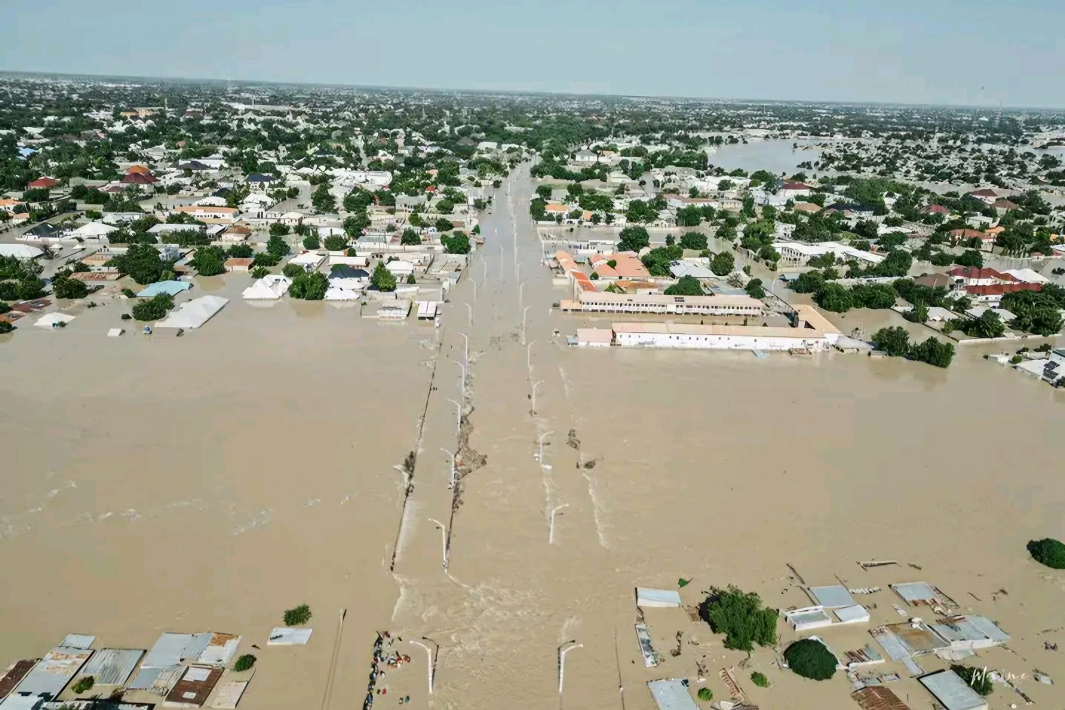By Wesley Omondi
MAIDUGURI, SEPTEMBER 14, 2024 (CISA)– Flash floods have wreaked havoc across Maiduguri Metropolitan Council (MMC) and Jere local government areas (LGAs), affecting more than 239,000 people. The flooding, triggered by heavy rains and the overflow of the Alau Dam, has caused widespread destruction, including loss of life, damage to infrastructure, and forced evacuations. The Alau Dam, located in the neighboring Konduga LGA, breached its banks after sustaining structural damage from ongoing rains.
The floods have displaced thousands of people, forcing many to flee to makeshift shelters, including the Muna IDP camp, which was already housing over 50,000 internally displaced persons (IDPs). The Borno State Government has reopened the former Bakasi IDP camp to accommodate 50,000 additional evacuees, but this facility has quickly reached full capacity. Other temporary shelters, such as the Dalori IDP camp and Asheik Jarma School in MMC, are also housing those displaced by the disaster.
The floods have severely restricted access to essential services, including hospitals, schools, and markets. Several health facilities, such as the State Specialist Hospital and the University of Maiduguri Teaching Hospital, have been flooded, forcing the evacuation of patients. Some schools in Maiduguri have also been closed for two weeks due to the flooding. The telecommunications and electricity networks in some parts of the affected areas have been disrupted, further complicating rescue and relief efforts.
In addition to damaging infrastructure, the floods have caused the escape of dangerous animals from the Maiduguri Zoo, including crocodiles and snakes. Local authorities have urged residents to exercise caution as efforts to recapture the animals are underway.
The Borno State Government has appealed for urgent humanitarian assistance, citing an immediate need for shelter, clean water, and food for the displaced. Joint Government and United Nations partners are conducting needs assessments, with priority interventions focused on preventing disease outbreaks in camps and evacuation sites. There are also concerns over the potential spread of cholera in the overcrowded camps.
The ongoing floods in Maiduguri are part of a larger crisis affecting Borno, Adamawa, and Yobe states, where over 123,000 people had already been impacted by floods and windstorms before this latest disaster. Borno State remains the most severely affected region, as widespread flooding threatens to worsen the ongoing food and nutrition crisis affecting millions.
“Some of the flood-affected areas in Borno, Adamawa and Yobe states are facing a food and nutrition crisis affecting 4.8 million people.”
As humanitarian organizations work to assess the extent of the damage and coordinate a response, local religious institutions, including the Catholic Diocese of Maiduguri, are mobilizing support. The Diocese has called on the public to contribute donations and continue praying for those affected by the devastating floods.
“The Catholic Diocese of Maiduguri will be reaching out for support in attending to the affected with details for donations. When she does, kindly give what you can to assist,” the diocese communicated even after St. Patrick’s Cathedral Catholic was submerged by the flooding.
